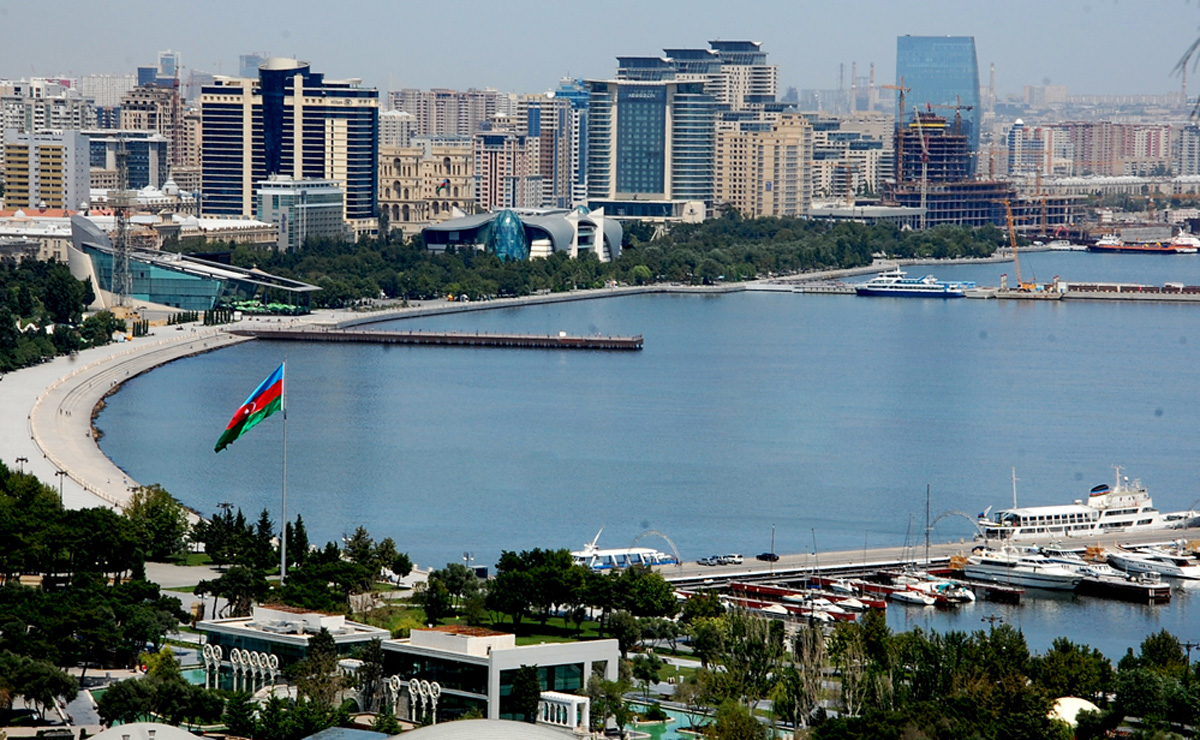Baku, Azerbaijan, Sept. 6
By Elmira Tariverdiyeva – Trend:
Some Western publications seem to have an editorial rule – they write about Azerbaijan whenever they don’t know what to write about, especially if their articles are well-paid.
One can write not only about Azerbaijan, but also about Russia, or any other country a Western reader is not aware of enough to make up his or her own opinion and not to believe in the nonsense of Western journalists. For many years now, officials of Russia, Azerbaijan and some other countries attacked by Western journalists from time to time, cite facts of obvious manipulation of information allegedly obtained by pseudo-journalists, demonstrate the evidence to the contrary and demand refutation, but everything is in vain.
Yet another provocative, anti-Azerbaijani fake news concocted by The Guardian with reference to own investigation is the continuation of a long-term campaign against Azerbaijan.
For those, who don't know: term “own investigation” means that an article is based on rumors, gossip, lack of facts and evidence of what is described in it.
One immediately remembers the sensational story of one US female journalist from one of the most famous US TV channels, who brought a photo of a Syrian boy allegedly killed by the Russian Armed Forces to a meeting with Russian foreign minister. The boy was found alive and safe one year later.
It is clear that the Western media outlets have long been using any means necessary to promote the interests of those who pay them.
However, let's get back to the anti-Azerbaijani article by The Guardian and the question “who benefits?”
Planned hostile campaigns and attacks against Azerbaijan have long become a usual method of fighting of some external centers of power, which use considerable means, including financial ones, to create the necessary anti-Azerbaijani mood in the Western press.
Azerbaijan receives totally arbitrary accusations usually when the country achieves success by holding sporting and humanitarian events, a song contest or an election that, in fact, only concern the Azerbaijani people.
For many years, Baku has tried to prove that the accusations being brought against the country are a heap of such monstrous lies, falsification of facts and fiction that it is not even worth denying them. However, an unaware reader prefers to believe in what is written, and not recheck facts.
It has long been known that the anti-Azerbaijani network paid by George Soros, a notorious architect of color revolutions in different parts of the world, and the Armenian lobby, operates in Europe.
At the beginning of the year, the European Strategic Intelligence and Security Center (ESISC) published a comprehensive report, which discloses the “Armenian Connection” network within the PACE, which “has led a merciless propaganda campaign against Azerbaijan to benefit Armenia.”
By the way, the report cites even more interesting facts related to George Soros. It turns out that he was linked by tender friendship and long-term partnership with representatives of the ubiquitous Armenian diaspora in the US. The report provides information, for example, on cooperation of Soros with Berge Setrakian, president of the Armenian General Benevolent Union (AGBU).
It is not surprising that a petition calling for US President Donald Trump to declare Soros a terrorist instantly gathered the necessary 100,000 signatures to be considered in the presidential administration.
It is clear that billionaire Soros and the non-poor Armenian diaspora have extra funds to buy two or three journalists. Though, it is not necessary to buy them, judging by the authors of the articles. It is unlikely that Dina Nagapetyants, the obviously Armenian author of the article published in The Guardian, would take money to drag Azerbaijan, the eternal Armenian enemy, into the mud.
However, the accusations of The Guardian are so absurd that it is probably not worth commenting on them. For all the years of independence, Azerbaijan regularly faced double standards of the West, because the country refused from the policy imposed on it and didn’t want to be someone’s colony.
The fact that the small country that gained independence only 24 years ago, wants and can be on an equal footing with the world powers, surely worried the West, which was accustomed to some subordination of small countries and all these years for many times tried to destabilize the civil society in Azerbaijan. Fortunately, all the attempts were unsuccessful.
One can only hope that eventually the West will finally realize the futility of exerting political pressure on Baku, and the Western countries won’t turn a blind eye to the obviously slanderous activity of their authoritative publications under the guise of the “freedom of speech” notion.






